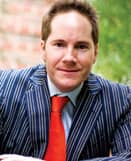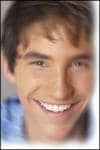My dad is a retired professor of engineering, although, like many professors, “retired” for him means “only teaching one class.” My older brother is also a professor, with a specialty in microbial ecology. Growing up in such an academic family, I learned to view scientific investigation and teaching as respectable ways to make a living and invigorating ways to live your life.
What I hadn’t realized until I commissioned a profile of Lysle E. Johnston, Jr, DDS, MS, PhD, FDS, RCS(E), is that professors can shape professions. As far as I can tell, Johnston is the Kevin Bacon of orthodontics: No one in the specialty is more than six degrees separated from him, and everyone to whom you mention his name seems to have a story that paints him as the smartest and funniest guy in the room.
Like my father, Johnston is officially retired but still teaching, so he continues to shape orthodontic minds as he has for the past half-century. What makes Johnston unique? Certainly his lifelong devotion to academic orthodontics makes him stand out in a field where private practice is more lucrative and popular. And he certainly has a knack for the memorable quip.
But reading the profile of Johnston on page 10, I was struck by the fact that he doesn’t just teach his students how to do something; he encourages them to ask themselves why they do it that way. I believe that this logical inquisitiveness has made Johnston a mentor and a hero to many of his students.
The Johnston profile is followed by two articles by orthodontists who have questioned what they do and come up with alternatives to common treatment methods. On page 20, Neal D. Kravitz, DMD, MS, writes about how he corrects crossbites using a combination of labial and lingual brackets. On page 26, Michael C. Alpern, DDS, MS, continues his “Troubleshooting Orthodontic Treatment” series with a look at how he collaborates with neurologists and psychologists to treat today’s stressed teenagers.
In the spirit of inquiry, I’ll end with a question: If you like (or hate) what your read in these pages, why don’t you let me know?


 By
By 






